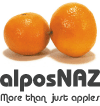The Debian GNU/kFreeBSD port
Proposal details:
| Abstract: | Debian GNU/kFreeBSD is a port of Debian using a FreeBSD kernel and a GNU libc library. It is currently the most advanced non-Linux port in terms of number of packages ported.
This talk gives an overview of GNU/kFreeBSD, and a quick comparison between the FreeBSD and Linux kernel, to give the users the necessary information to let them find how the FreeBSD kernel could fill their needs. It then describes the status of the port and the choices made concerning the architecture of the port (libc, threading library, etc.). It will continue by giving the various way to try this port and to give help, giving pointers to useful documentation and some useful hints. Best portability practices are also covered, for both the Debian packaging and the upstream code. It will be based on real examples of non-portable code, and will show the best way to change it into portable code. Outline ------- 1 - What is GNU/kFreeBSD? - introduction about GNU/kFreeBSD - what are its components? - it is a complete OS with its own binaries and not only a kernel that could replace the Linux one etc. 2 - Why using a FreeBSD kernel? In this part I intend to compare the FreeBSD kernel and the Linux kernel, giving the pros and cons for each of the kernels. The goal of this part is not to say the FreeBSD kernel is the better, but only to give the necessary information to the users to let them find why the FreeBSD or the Linux kernel is better for their use. 3 - Architectural choices - why a GNU libc and not the FreeBSD libc? - FreeBSD has a Linux emulation, why not using it for the port? - threading library etc. 4 - Status of the port - general usability - number of packages built - main packages still missing - status of the installer - inclusion into the archive - works to be done 5 - How to try it? The goal of this part is to explain the users the various way they could try this port (developer accessible machine, live CD, installation). It will also contains some pointers to the installation guide, and useful documentation, some hints on how to share the home directory, etc. 6 - How to help? This part will give the various way to give help to the port, from testing GNU/kFreeBSD and reporting bugs, to joining the development team. 7 - Good and bad practice about portability a - Debian packaging - things that should not be done - kernel specific (build)-dependencies - kernel specific binaries among other binaries in a Debian package etc. b - Programs - bad practices about conditional parts in codes (like checking for the Linux kernel instead of checking for the GNU libc, checking for kernel instead of checking for functionalities) - using autotools to detect functionalities etc. |
|
| Presentation type: |
|
|
| Track: |
|
|
| Status: |
|
Authors:
Aurelien Jarno



































